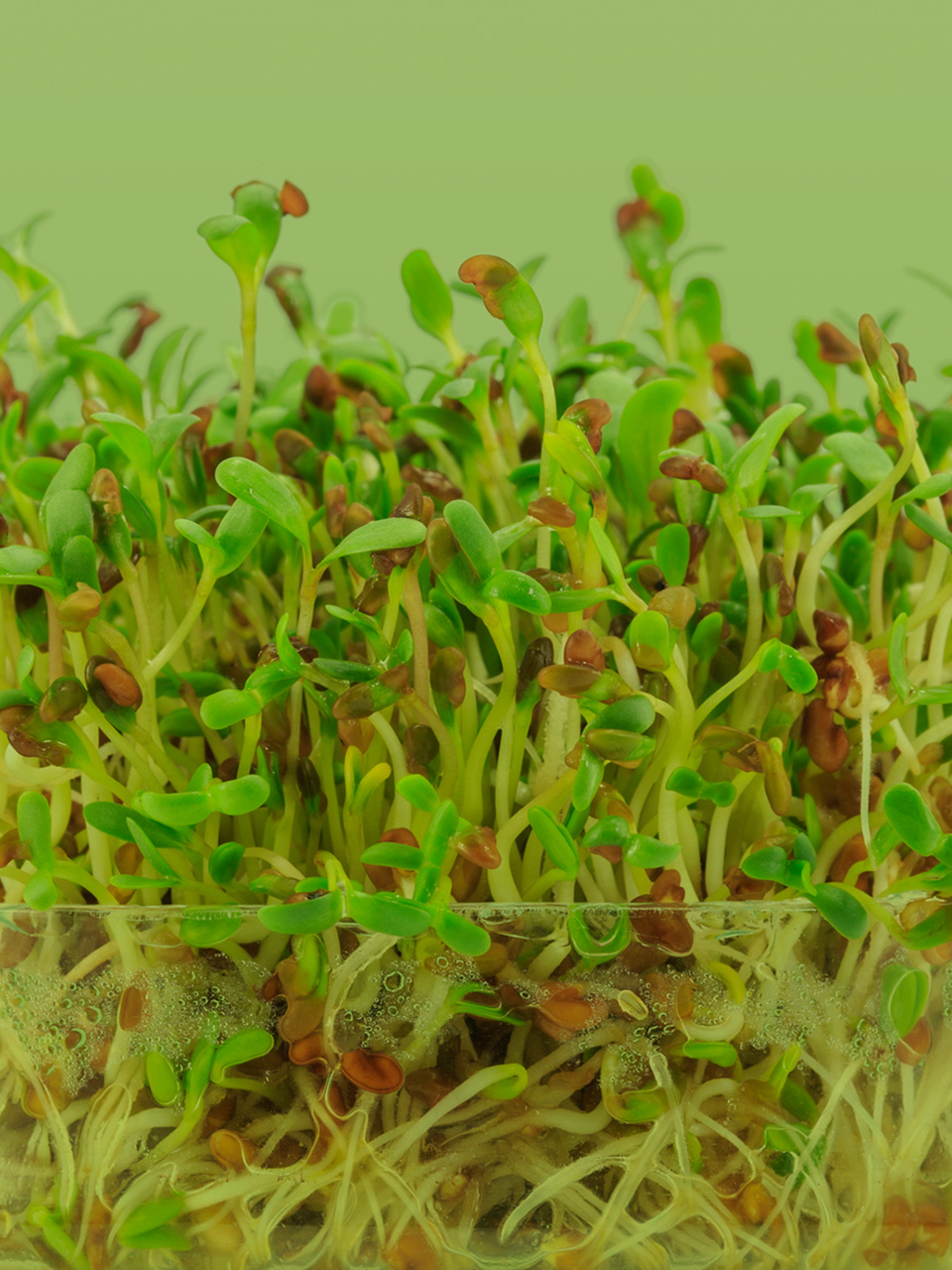
Tap to Read ➤
Health Benefits of Alfalfa
Sonia Nair


A herb that has been used for centuries, alfalfa is highly nutritious. This story is about the health benefits of alfalfa.

Primarily known as a forage plant, alfalfa is equally popular for its health benefits and medicinal properties. This plant (Medicago sativa) belongs to the pea family, and is also known as lucerne or lucerne grass in some parts of Asia. It is a flowering plant that can grow up to one meter in height, and produces small purple flowers in clusters.

Alfalfa plant has a very deep root system, that can extend to around 4.5 meters. It is because of this feature, that these plants are found drought resistant.

It is said that, due to the deep root system, alfalfa plant can absorb those minerals that are not usually found in the surface soil. This makes this plant special, and hence the name 'alfalfa', which means the father of plants. This plant was named by the Arabs, who found that their horses became strong and fit, after consuming alfalfa.

So they included this plant in their diet. Alfalfa is used in traditional Chinese medicine as well as Ayurveda, as a herbal remedy for certain digestive disorders and various other ailments.

Nutrition
Alfalfa is mainly used in the form of sprouts, tender stems, dehydrated leaves, etc. Nowadays, alfalfa dietary supplements are available in the form of tablets, powder, and tea. This herb is rich in minerals, like calcium, magnesium, potassium, phosphorus, and iron. It also contains B vitamins, vitamin C, E, and K, in fair amounts

Apart from that, alfalfa contains the natural form of fluoride, protein, trace minerals, fiber, essential fatty acids, and antioxidants too. Intake of this herb is said to be beneficial for absorption of protein, fats, and carbohydrates. It is also said to be an effective blood purifier.

Benefits
- Alfalfa is said to be beneficial for controlling blood cholesterol, by eliminating bad cholesterol from the body. This prevents plaque formation on the arterial walls, thereby reducing the risk of heart diseases and stroke.
- Benefits of alfalfa include its ability to reduce blood sugar levels. So this herb is often recommended for diabetics.

- The diuretic property of this herb is also beneficial for humans. Alfalfa is found to be effective for reducing water retention in the body, thereby preventing edema.
- This herb is also found to be useful in alleviating menopause symptoms, as some of the alfalfa constituents act like estrogen.
- It is also used for treating asthma and other respiratory problems.
- Alfalfa is used for curing digestive disorders and for detoxification. It is said to be effective in relieving muscle and joint stiffness and pain.
However, consumption of raw alfalfa may lead to Salmonella Saintpaul infection which can be caused due to contamination of the alfalfa seeds. It is always advisable to follow the instructions of a qualified herbalist for consuming alfalfa in any form. You may also seek the opinion of your healthcare provider before starting treatment of alfalfa supplements.
Moderate use is advisable, as overdose may cause breakdown of red blood cells, which is a serious condition. Kidney transplant patients, pregnant and breastfeeding women, and those who are taking anti-rejection drugs, must avoid using alfalfa.
Disclaimer: This story is for informational purposes only, and should not be used as a replacement for expert advice.